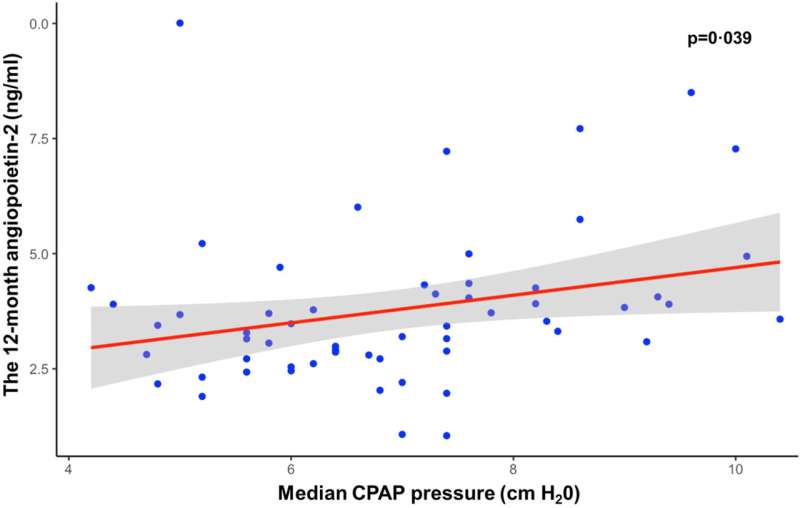This article has been reviewed according to Science X's editorial process and policies. Editors have highlighted the following attributes while ensuring the content's credibility:
fact-checked
peer-reviewed publication
trusted source
proofread
Why Doesn't CPAP Reduce Heart Disease?

A study of people with obstructive sleep apnea suggests that high CPAP pressures may explain why the machines do not lower a patient's risk of heart disease, which is about two to three times higher than average.
"CPAP machines are extremely effective in treating obstructive sleep apnea and are great for improving sleep and reducing daytime fatigue, but we haven't seen a reduction in heart disease that we expected, and we haven't understood why," says Sanja Jelic, MD, a critical care medicine specialist and sleep researcher at Columbia University Vagelos College of Physicians and Surgeons.
CPAP and inflammation
Obstructive sleep apnea affects about 25% of adults in Western societies and occurs when the upper airway muscles relax during sleep, collapsing the airway. The ensuing dip in oxygen often jolts people awake—every two minutes in extreme cases—leading to daytime fatigue.
"This can go on and on, with oxygen levels going up and down all night," says Jelic. The recurrent drops in oxygen levels, which lead to increased inflammation, are thought to cause the higher heart disease risk associated with obstructive sleep apnea.
Because CPAP machines restore normal breathing during sleep (by using positive pressure to keep the upper airway open), researchers believed that CPAP would also reduce a patient's risk of heart disease.
But several years ago, studies conducted by Jelic and Daniel Gottlieb, MD, a collaborator at Brigham & Women's Hospital, started to suggest a problem with this hypothesis. In studies designed to understand CPAP's effect on the body, they found that levels of a pro-inflammatory factor, angiopoietin-2, do not decline with CPAP use. High levels of Ang2 have been linked in previous studies to a higher risk of stroke, coronary artery disease, vascular disease, and mortality.
"It was a surprise. We naturally expected if you remove intermittent hypoxia with CPAP, Ang2 release would stop, but in fact, it got worse," Jelic says.
Around the same time, the results of three randomized trials of CPAP were coming out, and none of the trials found any cardiovascular benefit of the machines.
To Jelic, the pattern of Ang2 and other biomarkers in CPAP users resembled that from patients on high-pressure ventilators, and she hypothesized that high CPAP pressures may explain why the expected drop in heart disease didn't materialize.
New analysis
To dig deeper, Jelic and Gottlieb looked more closely at the participants in the first trial, RICCADSA, conducted in Sweden in 189 patients with obstructive sleep apnea. The researchers analyzed stored blood samples for Ang2 and other markers of inflammation and compared those numbers to CPAP adherence, median CPAP pressure, and the patients' heart health a year later.
Their analysis showed that Ang2 levels remained elevated in CPAP users, confirming Jelic's previous findings in smaller studies, and that high Ang2 levels were associated with a greater risk of cardiovascular disease 12 months into the study.
The patients with the highest Ang2 levels, the researchers then found, were those using higher CPAP pressures.
A standard CPAP prescription uses pressures ranging from 4 to 20 cm H2O with median pressures varying within that range. In the study, participants with median CPAP pressure between 4 and 7 had fewer cardiovascular events compared to participants using pressures of 8 or higher. No relationship was found between Ang2 levels and the number of hours the CPAP was in use during the night.
"This suggests to us that there's something in the lungs responding to CPAP pressure that perpetuates rather than reduces the inflammation associated with obstructive sleep apnea," says Jelic.
Pressure effects
Because CPAP is known to expand the lung, though not as dramatically as ventilators, Jelic thinks that stretched endothelial cells in the lung release extra Ang2. Though it's not possible to directly measure Ang2 release from people's lungs, when other tissues are stretched in laboratory tests, Ang2 release from endothelial cells increases sharply.
Already, Jelic has changed the way she uses CPAP with her sleep apnea patients.
"I have been prescribing lower pressures," she says. "We do a careful titration to see which pressures will eliminate most of the obstructive events, and it's working just fine."
Currently, most physicians adjust CPAP pressures to eliminate all obstructive episodes during sleep. But Jelic says that lower pressures may reduce Ang2 and produce the same sleep and fatigue improvements, even if some obstructive episodes break through.
"That's something we'd have to test in a randomized trial," she says.
More information: Yuksel Peker et al, CPAP may promote an endothelial inflammatory milieu in sleep apnoea after coronary revascularization, eBioMedicine (2024). DOI: 10.1016/j.ebiom.2024.105015



















